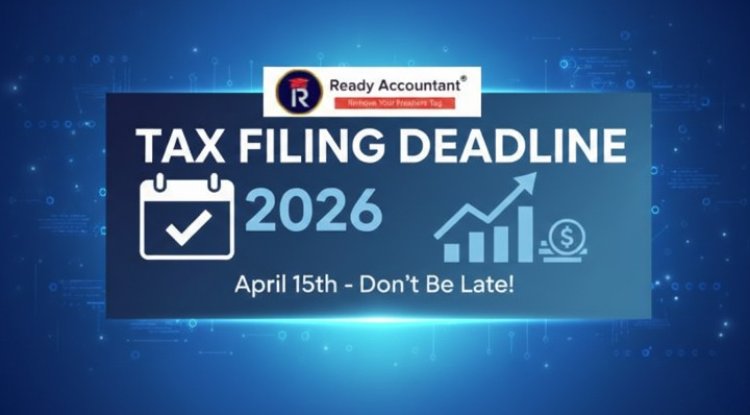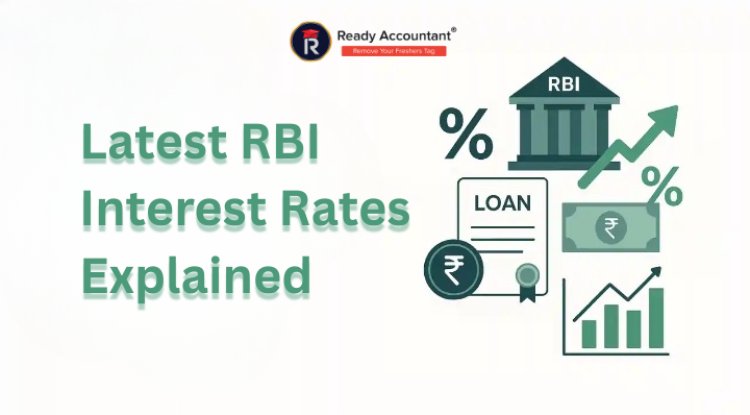Accountant Role in taxation
Indians generally view taxes as a burden, with only 6.25% of the population paying taxes in FY20. The government aims to increase compliance through simplification, awareness campaigns, and enforcement measures like 'Project Insight,' which promotes voluntary compliance, deters non-compliance, and ensures fair tax administration. Consequently, the role of tax accountants is gaining importance. Tax accountants help minimize tax liabilities, ensure compliance, and offer year-round services like investment planning. They require skills such as communication, numeracy, and problem-solving, along with deep knowledge of tax laws. With increasing demand, tax accountancy offers stable, well-paid career opportunities in India.

Indians generally lack tax culture and consider tax a burden to be avoided. As of FY 20, only a little over 8.2 crores people are taxpayers out of approximately 132 crore population, which is a meager 6.25% in contrast to the United States, where 45% of the population pays taxes. There are many reasons for this, such as complicated tax laws, corruption, and underground economies.
The government has taken many steps to widen the tax base such as using mass media to create awareness to encourage the voluntary filing of tax returns, issuing statutory notices to enforce compliance and simplification of income-tax returns and the filing process.The government is presently overworking to increase the number of taxpayers and decrease the scope for tax avoidance. Thus its ‘Project Insight’ focuses on three goals, namely:
Promotion of voluntary compliance, and outreach programs.
A deterrence for non-compliance, for instance, to tax at higher rates for the persons who failed to file tax returns for two years despite tax deductions or collection over Rs.50,000 in each of the two years, and
Promotion of fair and judicious tax administration.
Presently, a change is occurring in the attitude of taxpayers – a tendency for payment of lawful taxes is increasing. In FY 22 the net direct tax collection increased by 49.02%. Recent government drive against tax evasions has resulted in financial discipline and awareness among individuals and businesses. As such, they are showing more interest in hiring a tax accountant.
Who is a Tax Accountant?
A tax accountant is a person proficient in tax laws, rules, and regulations, and also the loopholes of those laws. They help individuals or companies in minimizing the tax payable to the government and avoiding any penalties, by filing legally accurate tax returns.
The role of a tax accountant in India also includes helping their clients to develop a profitable tax planning strategy by advising how to lower, defer, or completely cut tax payments, how to reduce taxable income and utilize deductions and exemptions and maximize tax refunds within the limits of tax laws.
A tax accountant also makes aware his clients about any changes in taxation laws and also represents clients in case of any legal disputes or audits. A tax accountant may hold a permanent in-house job in certain companies or may work on the payroll of tax consultants.
They are also hired by Government agencies, insurance companies, financial services firms, and high-net-worth individuals. Many tax accountants also work as freelancers. Many believe that the role of a tax accountant in India is limited to the financial year-end for three to four months.
But in reality, they provide their services to clients throughout the year. The services like guidance for investment and asset management, planning for financial development, and other tax planning that affect tax computation.
Functions of a Tax Accountant in India
1. Tax Computation- A tax accountant at the end of the financial year computes the tax liability of an individual or a company based on the tax slab in which they fall and the tax deductions for which they are eligible.
2. Filing Tax Forms- A tax accountant helps in filling specific forms for different categories of individuals. For example, there is a form 16 which needs to be filled out for claiming returns on Tax deducted at the source, again there is a form 15G/H that needs to be filled out and submitted to banks to prevent the deduction of tax on interest earned when the individual falls below taxation limit.
3. Tax Efficiency- Any taxation system has certain loopholes; a tax accountant studies, these loopholes carefully and finds out ways to lower the tax burden on his client. For example, for Hindu undivided families the long-term Capital Gains tax is exempt if the money obtained after selling a property is used to construct another property. A tax accountant can enlighten his client about such tax-saving provisions.
4. Liaising With Auditors- Tax accountants often liaise with auditors to ensure the propriety of the balance sheets of a company.
5. Liaising with Bureaucrats- In the course of their professional life tax accounting professionals are required to deal with bureaucrats all the time. Thus, an essential skill of tax accountants is the ability to make crisp, effective, and technically sound conversations that help cut the bureaucratic clutter.
6. Tax Prediction- Tax accountants advise their clients on the investments they can make which might give tax benefits. For example, a tax accountant might ask a senior citizen to go for Senior citizen savings schemes to park their retirement corpus as they are usually tax-exempt.
7. Representative of Clients- Tax Accountants represent the client before an income tax Commissioner or an income tax appellate tribunal if the income tax department finds any discrepancy in the tax filing. These cases can go on for years and businesses usually are keen to avoid such litigation to avoid cost overruns consequently business houses are willing to shell out a lot of money for competent tax accounting professionals in India.
Skills Required to be a Tax Accountant in India
Good Communication skills: Most of your clients are either laymen as far as tax laws are concerned or are not capable of following the intricate tax laws and structures, or their knowledge is not up-to-date. As a Tax Accountant, you have to be able to explain the intricacies of tax regulations to them in a simply worded and easy to comprehend manner.
Numeracy: As a tax consultant you have to deal with numbers most of the time and therefore you need to be comfortable with the numbers.
Time Management: There are specific temporal deadlines for every activity that has to be complied with by you or your client from submission of returns, TDS deduction, and deposition, to recording of every expense, investment, etc. Therefore you have to prioritize tasks and follow a professional time management plan.
Problem-solving Skills/ Creative Thinking: You must be able to solve issues and be creative in your thinking. For instance, your primary task is to reduce the amount of tax a client pays, and it is up to you to find out stuff and loopholes available in tax regulations and use them such as using tax-free investments, etc.
Attention to Detail: You have to be very attentive to details from concentrating on each word in Tax laws to every word and numerical your reports, and returns contain.
Well-organized: Lastly you have to be well organized and methodical as the process of tax computation is quite complex and a minor mistake or delay may cause monetary loss.to your client.
Deep Knowledge: To execute the role of a tax accountant in India, you must have a deep knowledge of rules and regulations, and practices in the field of direct taxes. Unless your concept of the taxation policies is clear it is very difficult to discharge the duties of your job.
Adaptability: The tax rules and regulation, in every country, changes now and then, depending on the taxation policy of the government, court decisions, etc. You have to keep yourself updated with the latest developments, be very adaptable to changes, and must make snap decisions when required.
Software Proficiency: The latest technologies are disrupting every field and so is the case of tax accounting. Today there is much new software for accounting jobs like bookkeeping, tax computing, etc. You have to be conversant with them as it saves time and labor.
Why Do You Need a Tax Accountant?
An essential role of a tax accountant in India is to help individuals and organizations to comply with the requirement of tax laws. A tax accountant helps clients to optimize short or long-term tax computation, minimize the tax liabilities and fulfill tax compliances.
Hiring a tax accountant allows you to pay only the obligatory taxes and avoid tax liabilities. It cost less and saves time if tax laws comply with that the cost and time taken to clear yourself from disputes in case of any non-compliance. A tax accountant helps you to avoid non-compliance.
Qualification Required to Discharge the Role of a Tax Accountant in India
An undergraduate degree in accounting or commerce is the minimum requirement for a tax accountant in India. According to Section 288 of the Income Tax Act, 1961 – Clause (v) and Clause (vi) of Subsection (2) the educational qualification prescribed for “Income Tax Practitioners” is just passing an “Accountancy Examination”, or having acquired just a “Degree in Commerce or Law”, respectively. But some employers ask for more education in tax accountancy beyond a traditional bachelor’s degree in accounting.
What is Tax Accounting?
Tax accounting is a subsector of accounting methods that deal on with the preparations of tax returns and tax payments rather than on public financial statements. Internal Revenue Code dictates the specific rules that companies and individuals have to follow while preparing their tax returns.
Prospects of a Tax Accountant in India
There are many well-paid and stable jobs available for a person who is well experienced in the role of Tax Accountant in India. They are hired by corporate houses, big tax consultant houses, CA firms, Insurance Companies, and NBFCs. Many small businesses, net high-income individuals, and now a day MSMEs too hire them.
At the entry-level, with less than 1-year experience, they can get average total compensation of around 3-4 lakhs per annum. Moreover, a freelancer also can earn over 6 lakhs per annum once they earn some reputation in the market.
FAQs
Q1. Since the global economy is inherently unstable, is it possible that the role of a tax accountant in India will become less important in the long term?
Though the global economy has faced newer challenges of a pandemic and recurrent wars in the 21st century this has always been the case, but the world economy has been resilient to economic shocks of gigantic proportions. Also, with the advent of Globalization, the role of tax professionals is only going to increase with time.
Q2. Can I play the role of a tax accountant in Kolkata if I do not have a Commerce background?
Theoretically, the answer is yes you can if you love numbers and can pick up accounting principles in a course of say 6 months or 12 months duration. However, being a tax accounting professional is a preferred choice for most Commerce or Business administration graduates since they learn most of the accounting staff in the course of their college curriculum itself.
Q3. Is there a minimum age criterion to play the role of a tax accountant in India?
Most companies today want a competent individual who can get their job done so ideally there is no age bar to becoming tax accountancy professional in India, but most companies will want at least a bachelor’s degree in a relevant field, and also some hands-on training/experience in tax accounting before they hire someone for a fulltime job. Hence tax accounting professionals in India will be 21-22 years of age before they start working as tax accounting professionals in India.
Q4. Can I take a tax accountancy professional course in the online mode?
Today several institutions offer tax accounting professional courses in India in the online mode. Ideally, one can become a fully competent tax professional in India by pursuing such an online course since these courses do not involve much fieldwork. However, what is crucial is the ability the learn the work well enough to manage the tax issues of an entire company all by yourself. Most of the institutes that offer certificate courses for tax accountancy in India have live training programs, internships and guaranteed placement assistance after the duration of the course is complete.
Q5. Do foreign universities provide certificate courses that will help you fulfill the role of a tax accountant in India?
Several foreign Universities provide certificate courses for tax accounting. For example, Northeastern University, US provides a Master’s degree in taxation, that too in online mode, and the Universities of Sydney and West Australia also provide a Master’s degree in taxation in an offline mode. However, if one wants to be a tax accountancy professional in India it is always advisable to pursue a course that is based on the Indian tax system because all countries have their tax laws and knowledge of the Indian tax laws will be crucial for individuals and companies which operate under India’s tax jurisdiction.
Conclusion
The role of tax accountancy professionals in kolkata is varied, complex, and challenging yet interesting all at the same time. You may choose to become a tax accountancy professional at various stages of your career starting from graduation or a little later once you have tried your hands at other jobs. Today there is no dearth of institutions that offer courses to make you market-ready tax accountants. This combined with the ready job market and good pay scales for tax accountants in India is compelling the youth to make a beeline to execute the role of a tax accountant in India.
But you as a tax accountant have to keep yourself updated not only with the changes in tax rules, regulations, and policies but also with the evolving smart and digital technology. In the future, Smart software systems – including cloud computing – will replace traditional practices. Finally, till Governments levy taxes, the future of tax accountants is bright.
What's Your Reaction?




















